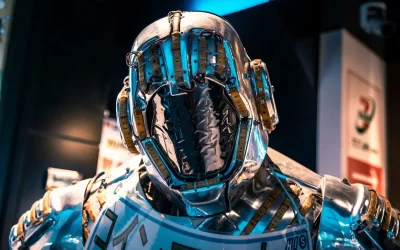Forget basketball or football; the games gaining more and more attention lately can often be found in esports. Competitive video gaming allows many self-professed techies to live their dreams of playing video games for a living. Many of them form esports teams and play games like Overwatch or League of Legends in tournaments, often even televised.
Outside of esports, there are professional gamers who run Twitch streams where others can subscribe to them as they play through their favorite video games in an entertaining way. But like everything else, becoming popular as a professional gamer involves a fair bit of branding — which means delving into IP and trademarks. When you decide to become a gaming pro, here are a few branding things to keep in mind.
What Can You Trademark As a Professional Gamer?
Professional gamers make a living playing video games which were typically created and distributed by someone else. It’s clear from the outset that they do not own the games they play, but they do own the parts of their brand that make them stand out from other gamers. Some Twitch streamers who use Twitch as their full-time income will create their own business names, which can be trademarked as long as they are unique and distinct. If you use a logo to distinguish yourself as a professional gamer, this can also be trademarked.
What does this do for you as a professional gamer? For one thing, it clears up some confusion. Other gamers won’t be able to use your name or a logo that is too similar to your own. This will make it easier for your fans to follow you and see what you’re up to. The more your fans are able to follow you, the more popular you will become as a gamer, which could open up opportunities for tournaments, esports teams, and sponsorships.
Other Trademarks As a Professional Gamer
When you join an esports team, you’re often part of a league — such as an Overwatch league. In this case, Blizzard (the company behind Overwatch) has already signed off on their game being part of an esports tournament. References to the game you’re playing are a necessary part of the tournament, and no one will think much of that.
But what about the snacks you eat on streams or the logo you wear on your T-shirt? Small time streamers probably won’t get in much trouble for drinking a brand name soda on stream, but the general rule is not to display a brand that isn’t associated with you as a professional gamer. Some streamers will get around this by using a cup cozy to cover up brands or even blurring out a brand in editing. Similarly, you have to be careful referencing other brands too much while playing games professionally.
One key difference here is sponsorships. If you or your esports team gets enough attention in professional video gaming, you may attract sponsors. Sponsors will offer financial support to your career as a professional gamer in exchange for promoting their brand. Many of these sponsors are involved in the gaming industry in some way. They may produce a particular piece of gaming gear or may be coming out with a new game that they want you to highlight. However, in some cases, you may have bigger sponsors, such as snack corporations or apparel companies. Your sponsorship contract will lay out in what way the sponsor wants their brand to be promoted.
Becoming a professional gamer is a dream career for some, but dream careers still require you to consider trademarks and other forms of IP. If you need help navigating the IP side of professional video gaming, contact Garcia-Zamor today. We have over two decades of IP law experience and we can help ensure your brand stays protected.







